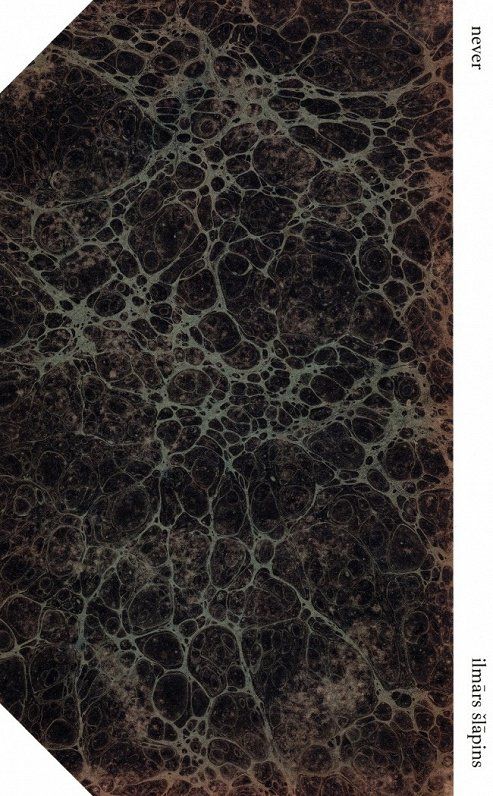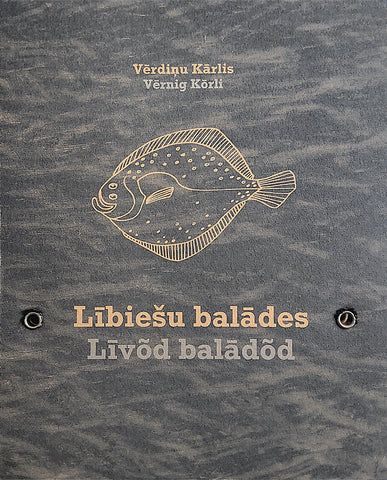READ AND PARTICIPATE IN THE VOTE:
Erika Berzisna “Goodbye to Bohemia”
(“Orbit”)
Erika Bērzina’s first literary publication took place way back in 2001 in the magazine “Karogs”, now only remembered. Since then, the poet, editor, journalist has been a visible and integral participant in the literary process, whose poetry books have come to the attention of observers and evaluators of the process. The latest collection “Goodbye to Bohemia” to some extent continues the mood of the previous poetry collection “Mammas dzejoļi” – it is an even more open and honest depiction of a woman’s life, in which the author’s language and depth can be appreciated.
Photo: Publicity image
In her poetry, Erika Bērziņa knows how to capture a woman’s life in its changes, which creates associations with the seasons – after the dizzying summer bohemia comes the colorful but a little sad autumn, and somewhere in between, you can’t do without the fresh spring and falling in love.
In her fluid change, a woman takes on different roles during her life, applying them to herself, but more to the conditions of the family or society. Erika Bērzina’s “Goodbye to Bohemia” marks the different stages of a woman’s life, the author’s poems are closely related to her own personal experience, but masterfully go further and deeper until it is easy for every woman to see herself in them. The bright language of the author marks expressive scenes, creates associations and obvious differences of different stages of life. The power of the author’s poetry is expressed in details and in the lyrical heroine’s relationship with those around her, but mainly with herself, and the poetry collection forms a kind of time capsule that captures a woman’s life in its splendor, brightness, sadness, reflections and changes.
Goodbye to bohemian sounds with quiet regret – the poems of the bohemian period have many bright colors and expressions, which later subside. However, at the same time, the collection resounds with the strength of a woman, which grows in her with the arrival of children in her life, with growing up, with getting to know the different aspects of life and a little with sadness for everything that is crooked, different, wrong in the world.
Marts Pujats “Lady in White Jeans”
(“Nonbird”)
Marts Pujāts, the author of six books of poetry, will delight readers with his fourth collection for adults in 2023. “Lady in white jeans” is poetry that makes you empathize and be present, not so much empathizing with a person, but more with a place, a moment, which, captured right here and now, is already the past in a second. The collection of poetry has already won the praise of critics and poetry evaluators and won the “Poetry Award 2023” of the literary magazine “Domuzīme”, and has now also been nominated for the Latvian Literature of the Year Award.
Photo: Publicity image
Allowing yourself to simply be without rules and preconceptions tends to be full of satisfaction and joy, because such openness to the moment gives you the opportunity to be here and now. It is a feeling that is almost impossible to achieve for today’s busy person. Marts Pujāts has captured moments, scenes, feelings and associations in various places throughout Latvia in his poetry. The short-form poems are like small sketches that serve as memories of the specific place, but these poetic moments create new associations, new stories and allow the described place to come alive in a new breath and space. There is something very suggestive, sometimes childish in Marta Pujat’s poetry, like a vision of a lady in white jeans walking through the collection – perhaps seen only once, but indelible from memory and horizon.
Marta Pujāt’s peculiar sense of language overwhelms the reader, and the thought, which is apparently broken and illogical, swallows the reader like the dust of a Latvian country road.
The poetry collection “Lady in white jeans” is like a short travel diary, in which the real and the imagined intertwine together and in which to draw inspiration for a small summer trip, and maybe even for white jeans. The power of the poet is manifested here in the art of creating ever new layers of associations in the reader with seemingly minimal means and muted poetic images – a thought, feeling, breath, having started in one place, moves ever deeper, further and stronger somewhere in the roads and disappearing fields of Latvia.
Ilmar Šlāpin “never”
(“Nonbird”)
Philosopher, publicist, writer, translator, playwright and editor Ilmars Šlāpins is not a newcomer to poetry. “never” is the author’s third poetry collection, the first to be nominated for the Latvian Literature of the Year Award. The collection combines poems written over the course of 18 years, but most of the works included in the book were written in the years that we now collectively call the time of the pandemic.

Photo: Publicity image
Poetry that stops the moment a bit, makes you focus your gaze, allows you to see and see something that happens only in us in the greenery, splendor, flourishing madness – Ilmar Šlāpin’s latest collection of poetry “never” is concentrated and world-encompassing thoughts. This poetry is not about an existential crisis, unrequited love or life in post-pandemic and post-war conditions.
These are texts that could also happen in us, but at the same time could not, because none of us is Ilmars Šlāpin.
In the same way, you don’t want to divide this into gender or age, objectifying or concretizing the reader of this book. As a philosopher, Ilmar Šlāpin talks about being human in a world that simply happens and in which we can change little. As a poet, he chooses simple but very precise words, a message-like form and expression, in which a bit of irony comes through tastefully and almost imperceptibly. The collection’s game with the reader’s consciousness and perception begins already in its title, which can be translated from both English and Russian, but is just as easily perceived as a warning in Latvian – do not open the book’s covers if you do not want to meet the past, present or yourself.
Ilmars Šlāpins in the book “never” is an observer who does not condemn, trivialize, shame or criticize. More than anything else, this collection of poetry tells what we humans feel and know but never know how to put into the right words. The poet’s skill is revealed here in the independence of thought, but also in the ability to tell others about his vision of the world with the help of a poetic image and a lyrical hero.
Kārlis Verdins “Libyan Ballads”
(“Nonbird”)
One of the most awarded authors of contemporary Latvian poetry, Kārlis Vērdiņš, has been nominated for the Latvian Literature of the Year Award twice this year – the poetry collection “Jandāliņš” has been nominated for the award in the category “Best Literary Author Work for Children”, while the book “Libyan Ballads” is competing for the title “Best Author Poetry”. The collection of poetry is published bilingually, and the lines written by Kārļis Vērdiņš can be read in Latvian, but they have been sung in Libyan by Valts Ernstreits.

Photo: Publicity image
The freedom with which Kārlis Vērdiņš works with text, language and ideas is amazing.
“Libyan ballads”, in which the author plays with Libyan culture, personalities, history, sound easy and relaxed. It is the appearance behind the author’s work, research, devotion to the subject, surrender to an idea that is not just for entertainment. Kārlis Vērdins’s collection is a possible time capsule, a fiction, a version of how Libyan poetry might sound today, and behind the light humor and irony lives a strong respect for both the researched material and the impact the collection creates on the reader. The story of “Libyan ballad” begins in the book covers, binding, paper material, every detail is saturated with a message, associations and its meaning, which of course depends on the life and emotional experience of the reader. The form of the poetic works once again proves the talent of Kārlis Vērdins as a storyteller and his ability to tell the story of life and destinies – in “Libyan ballads” the author turned to lyric poetry, preserving the nuanced richness of the language in his poems.
Kārlis Vērdins does not tend to repeat himself. “Libyan Ballads” also sounds like a search for new paths, a text whose lightness and precision to strive for and to think about – as no one had imagined anything like that before. “Libyan Ballads” is a work that proves the poet’s power not only to live and write across time, but also to turn it back. Or reinvent it.
Choose your favorite!
From March 29 to April 28, public voting for the “Latvijas Literaturas gada balvas 2024” will take place on the public media portal LSM, allowing readers to determine their preference.
Choose your favorite and authenticate with your e-mail or social media profile at the bottom of the vote! You can vote once a day.
Tags: encapsulate time poetry nominated Literary Year Award prove Script
-








